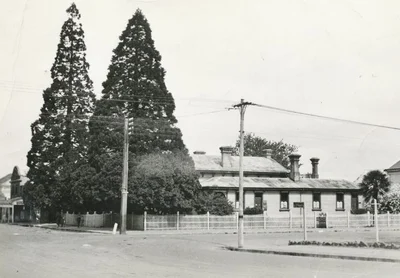April Fools at the Magistrate’s Court

If you are reading this, then congratulations: you survived April Fool’s Day intact. Hopefully your family, friends, or playful colleagues did not cause you too much grief on that infamous day of pranks, tricks, and tomfoolery.
It has been quite a while since we have featured a page focusing on outlandish crimes from our history, as reported in the Guardian of old, but now we are breaking the dry spell. Of course, more often than not, crime is no joke. Real people fell victim to horrible acts committed by others, and historic newspaper columns tell of many awful deeds from the past. On the flip-side, as one can imagine, many acts that landed defendants in court were downright silly, or were the product of circumstances one could scarcely imagine.
The reports that follow come from the Guardian during the late 1880s and 1890s, and in keeping with the theme of April Fool’s Day, the acts were prosecuted only in the month of April.
Whistling Willie
On 18 April 1889, the Guardianreported that a “Whistling Nuisance” was brought before the Resident Magistrate, Mr. C. A. Wray. The defendant, William Reece, was charged with “having disturbed an audience in the Oddfellows Hall, by whistling.” The case is explained by the Guardian as follows:
“Constable Casey said that this defendant and a number of others were making a disturbance at the Hall on the 10th inst. The defendant was whistling loud, with his fingers in his mouth. Frequent complaints had been made of the annoyance caused by larrikins (delinquents) at the back of the hall whistling during an entertainment. – Defendant called one witness, a youth named Gideon Scott, who said that he was sitting near the defendant. The latter did not whistle during the performance – defendant positively denied the offence.”
Due to a lack of evidence and a possible mistake made by the Constable, William Reece was given the benefit of the doubt and was released. The offence complained of, however, was deemed “most objectionable”, and that anyone caught doing this would be punished “severely”.
78th time the charm
On 25 April 1890, a woman with a staggering history of criminal behaviour appeared before the acting Magistrates, Major Stewart and Mr. Alfred Harrison, J.Ps. The woman, who was known by the aliases “Petty” or “Cunningham”, was a notorious offender. She had previously appeared before the court a whopping 77 times, this being her 78th time in court! She was charged with being drunk and disorderly on the racecourse the previous day. She pleaded guilty and was sent to jail for three months.
How one manages to get in trouble that many times, apparently for the same crime, and seemingly without having received adequate rehabilitation prior, defies the imagination. The criminal justice system of the day was typically much more severe in its punishments, yet often random or arbitrary in its conclusions. Many “offences” were prosecuted that we would now consider the responsibility of social services, and in Petty’s case, perhaps she had not previously been rehabilitated at all. The whole thing is a bit sad, though it is equally astounding and amusing that this offender may have been called up and gotten off lightly up to 77 times!
An exodus of sheep
On 16 April 1896, Magistrate C. A. Wray charged Conrad Primmer with obstructing the Back Track in the Rakaia Road District for three days, due to a large mob of thousands of sheep he was herding. One witness said that it took the mob seven hours to move less than three kilometres along the track.
The offender’s defence was that, having driven the mob of sheep (which initially numbered 7,000) from Blenheim, starting in February, he was promised a paddock at Highbank after 26 March to accommodate the sheep. He reached Rakaia on 20 March, the mob now numbering 4,000 after 3,000 were drafted at Greendale, but even so there was nowhere to keep such a large lot of sheep in Rakaia until the 26th.
Primmer left the mob with a mate and told him to start making his way toward Highbank, he himself going to Ashburton for a few days. On his return, he found that the mob had not yet reached the paddock at Highbank, having been bogged down in mud due to wet weather. Primmer tried to get accommodation at Barrhill for his flock, but again there was nothing available, and so he claims he was forced to use the road until the Highbank paddock was ready even after having reached the destination. Other mistakes and hold-ups only added to the nuisance caused to locals along the Back Track.
Primmer was made an example of by the police, as a warning that such loitering was not permitted, and he was fined 20 shillings along with court costs, totalling 2 pounds, 19 shillings, and 6 pence.
By Connor Lysaght
